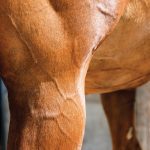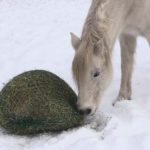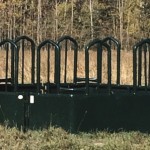
Tag Archives Equine nutrition

The critical role of magnesium in horse health
Short-changing a horse on magnesium can impact both physical health and temperament

The numerous benefits of slow feeding to the horse
Horse Health: Horses are designed to eat low-energy forages nearly constantly

The health benefits of simplifying a horse’s diet
Horse Health: Despite what the marketing might suggest, often less is more when it comes to the diet of a horse

Winter is the ideal season for healthy weight loss in horses
Horse Health: Hay nets are a good way to prevent horses from overfeeding during the colder months

Feeding round hay bales to horses has risks
Concentration of nutrients and overfeeding are among the potential problems
People aren’t the only ones to get late-winter blues
Food manufacturers could soon be paying more for oats
The elimination of European oat tariffs could present new opportunities for North American oat growers
Without a rebound of the equine oat market, oat growers could see the crop slide into special crops territory and lose its spot on the Chicago Board of Trade. Losing the CBOT oat contract is a development that would cost producers and processors dearly, according to Randy Strychar of Ag Commodity Research, who spoke aboutFeed horses properly in winter
Canadian oat growers up efforts to retake U.S. horse feed market
Over the last 15 years, Canadian oat exports have dropped by 70 per cent as U.S. feed manufacturers switched to cheaper ingredients
Canadian farmers are urging American horse owners to ask feed makers, “Where’s the oats?” “What we have to do is convince the people who put the feed formula together to put the oats back into the formulation,” said Bill Wilton, president of the Prairie Oat Growers Association (POGA). Over the last 15 years, Canadian oat



